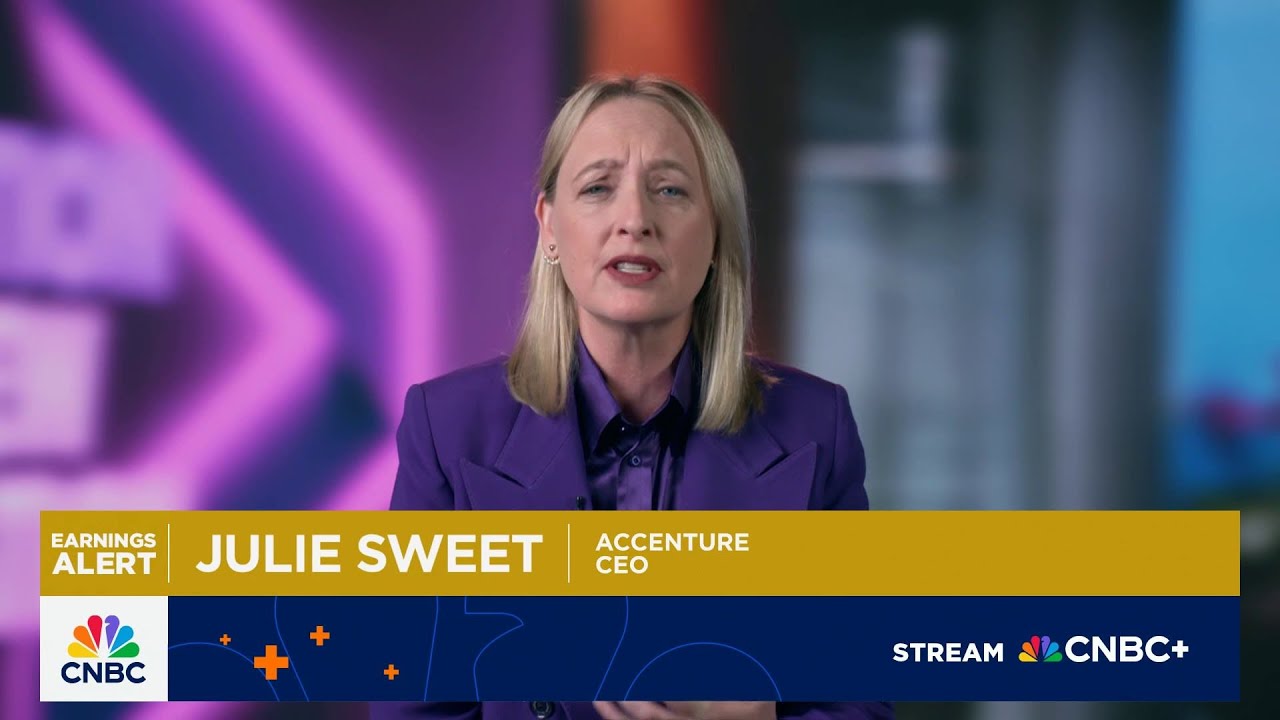Accenture CEO Julie Sweet highlighted strong bookings driven by widespread adoption of generative AI, with the company restructuring to better integrate strategy, technology, and operations for scalable AI solutions despite challenging market conditions. She emphasized that while AI fuels transformation, successful reinvention requires embracing change management and operational understanding, with clients prioritizing innovation to build resilience and maintain growth.
In the recent discussion with Accenture CEO Julie Sweet, she addressed concerns about the company’s bookings, which showed a 6% decline in U.S. dollars for the fiscal third quarter despite beating top and bottom-line expectations. Sweet clarified that bookings remained strong at nearly $20 billion, though the comparison was tough due to a 26% increase in the previous year’s quarter. She highlighted that 30 clients each contributed over $100 million in bookings, and the company raised its guidance on revenue, earnings per share, and free cash flow, demonstrating resilience and agility in a challenging market environment.
Sweet emphasized that the primary driver behind Accenture’s bookings growth is the increasing adoption and scaling of generative AI across industries. She provided examples such as Fincantieri’s connected ships, which use AI to predict maintenance and optimize energy use, and the modernization of manufacturing and supply chains for the cheese brand Baby Belle. This widespread integration of AI into various enterprise functions is fueling demand for Accenture’s reinvention services, which combine strategy, technology, and operations to deliver comprehensive solutions.
The CEO also discussed the company’s recent organizational changes, which involve merging strategy consulting, technology, and operations into a single unit. This restructuring aims to simplify the delivery of integrated solutions that embed data and AI, enabling Accenture to scale its offerings more effectively across existing and new markets. Sweet noted that since she became CEO, Accenture has maintained a 10% compound annual growth rate by anticipating market trends and adapting its operating model to capture emerging opportunities.
Regarding the tough market conditions, Sweet pointed to multiple factors including geopolitical tensions, economic uncertainty, tariffs, and shifting customer behaviors. She stressed that while these challenges create complexity, they also present opportunities for AI-driven transformation. However, she cautioned that AI alone is not enough; companies must understand their operations, embrace change management, and be willing to disrupt traditional processes to realize value. Accenture’s clients are actively pursuing reinvention to build resilience and achieve tangible results despite the uncertain environment.
Finally, Sweet addressed concerns about CEO confidence hitting a five-year low and its potential impact on hiring and capital expenditures. She observed that while companies are managing budgets cautiously in the short term, many CEOs remain committed to accelerating transformation efforts. The focus is on prioritizing initiatives that drive meaningful progress and leveraging AI to leapfrog competitors. This strategic emphasis on reinvention and innovation underpins Accenture’s growth strategy and its ability to support clients in navigating both cyclical and structural market changes.
